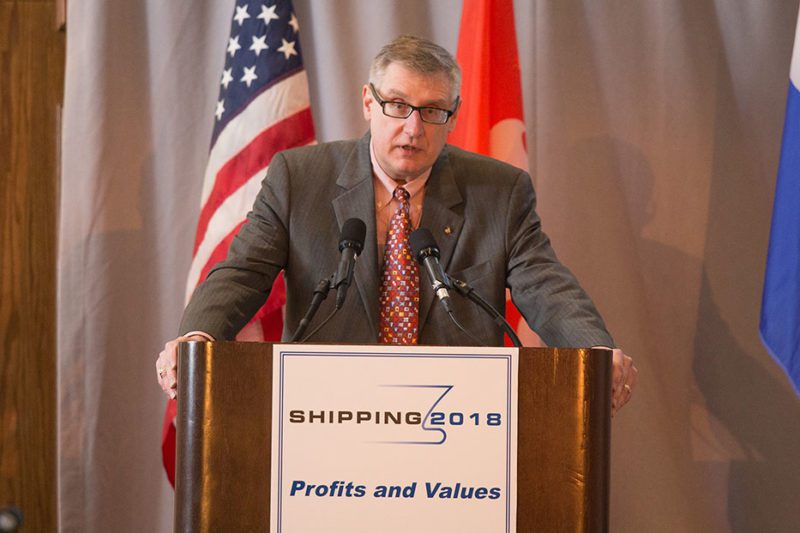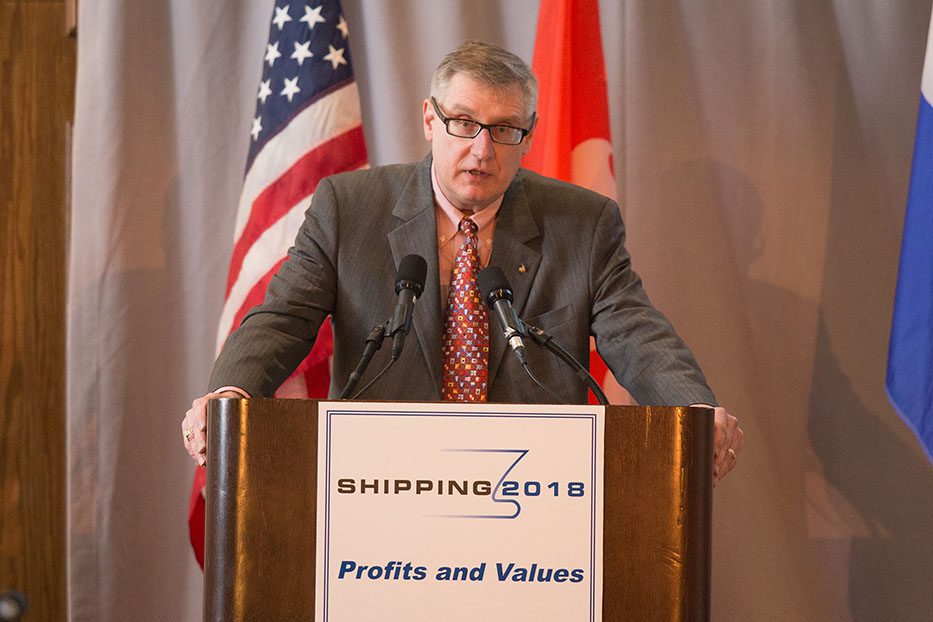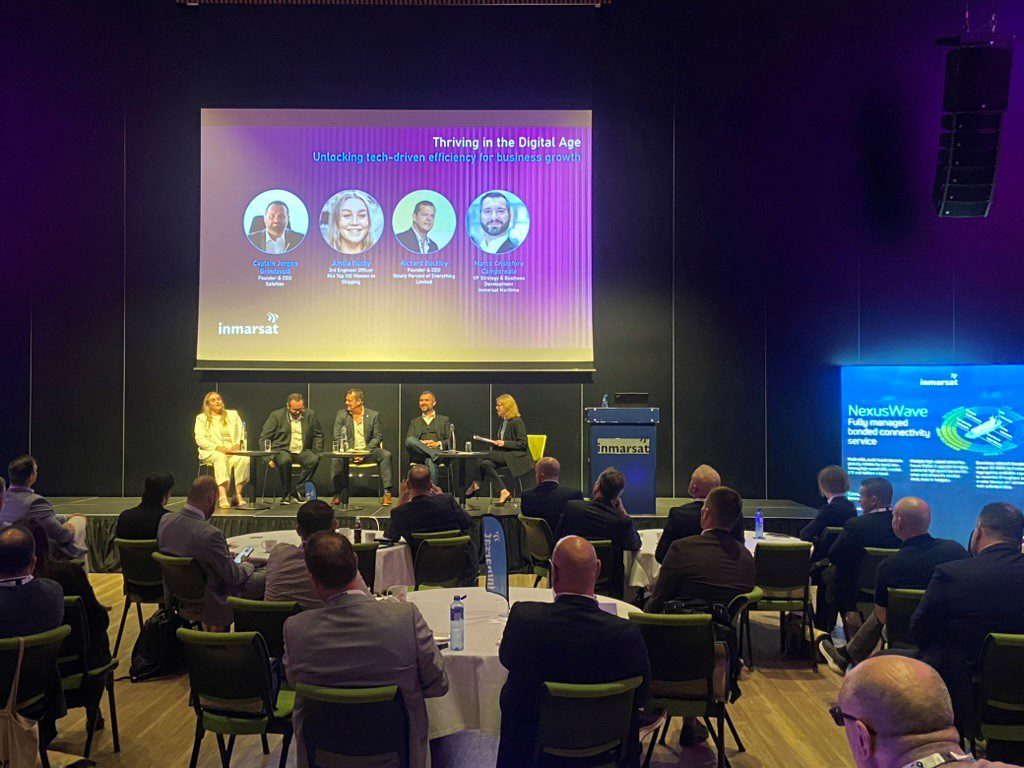
ABS Chairman, President and CEO Christopher J. Wiernicki addressed industry leaders at the opening session of the Connecticut Maritime Association Shipping 2018 conference. He detailed how global megatrends and shipping industry challenges, including digitization and connectivity, cybersecurity, efficiency improvements and optimization gains in operational performance, and emissions reduction are redefining the current world in which we work.
“It’s clear our business environment is changing and we have a new definition of what normal means,” Wiernicki said. “Normal means nothing is normal. Normal means change. The new norm will be more data-intensive, focusing on better asset management decision making, not just better equipment or physics.”
Analyzing the challenges facing leaders in the new normal, Wiernicki outlined three actions leadership must take in order to succeed.
“Leadership must understand the role of technology and the importance of assessing technology risk in the commercial risk decision making process, maintain a healthy balance between innovation and pragmatism especially when it comes to digital technologies, and recognize it has three levers to pull in order to achieve competitive performance: Identifying and developing talent, managing and rationalizing technology, and choosing the right operating model for a business,” said Wiernicki.
“The step-change for shipping is likely to have a longer horizon, and the more disruptive digital technology-driven changes are likely to be introduced first to the commercial process in shipping’s supply chain, such as blockchain, trading platforms and predictive vetting and training,” said Wiernicki.
“This will most likely be followed by gradual changes in the digital operating ecosystem in the form of redefining ship-to-shore communication through cloud computing, improving navigation through greater situational awareness and object recognition using sensor technology, relying more on data-driven predictive and preventive maintenance to improve propulsion system performance, and by condition-based versus calendar-based classification,” he concluded.

 Join The Club
Join The Club












